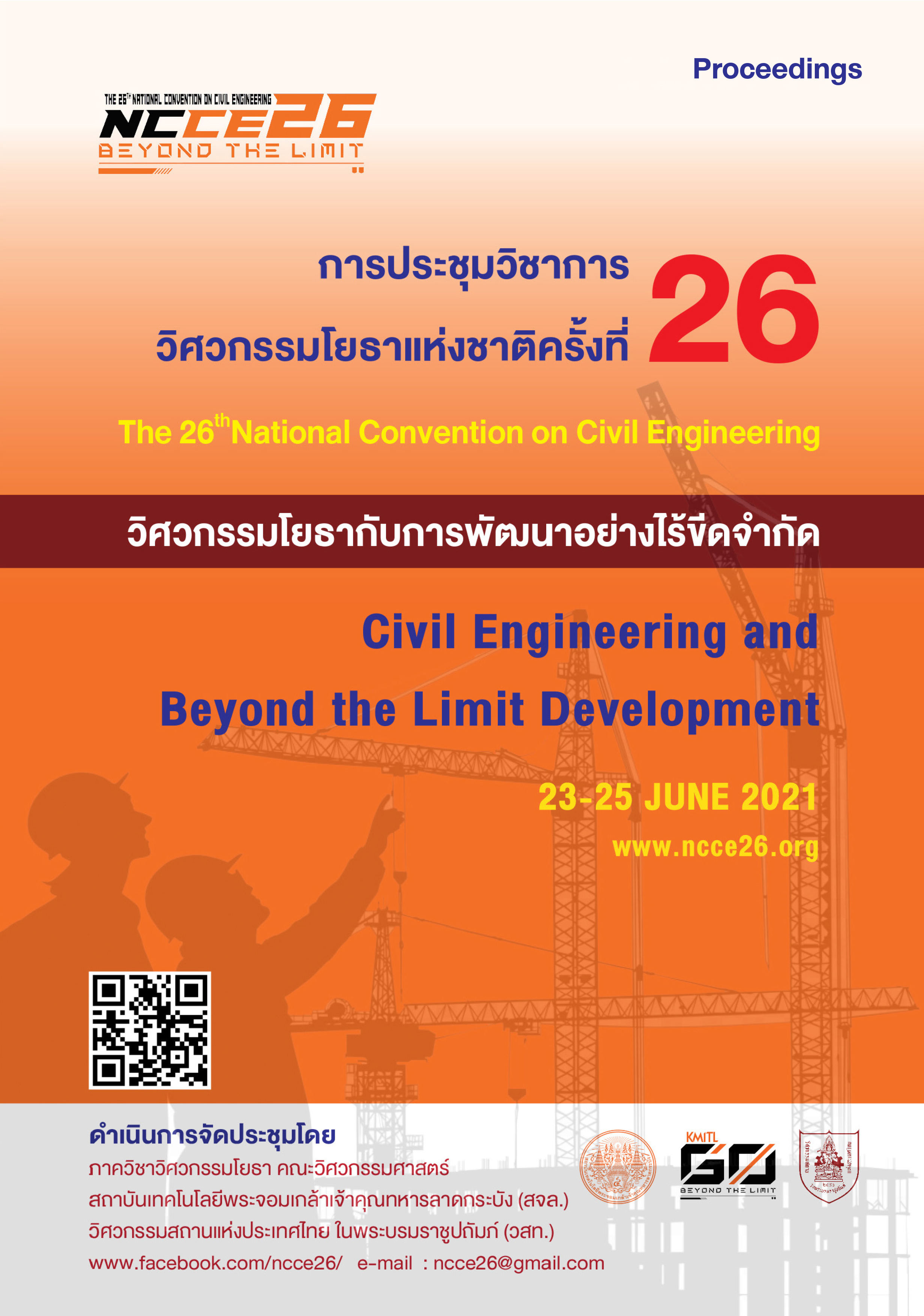Use of Temperature to Accelerate Cyclic Residual Strain of a Polypropylene Geogrid
Keywords:
Tensile testing, Residual strain, Cyclic, Geogrid, TemperatureAbstract
Presently, geosynthetic-reinforced soil (GRS) structures are widely used in geotechnical engineering works, due to their high performance and cost-effectiveness. However, when compared with other types of reinforcing materials such as metal strips, polymer geogrids are more deformable, especially when subjected to cyclic loadings. Generally, the geogrid’s tensile strain consists of the part that is recoverable upon unloading and the part that is irreversible even after a full unloading. The latter part is known as the residual strain. This research aims to investigate the use of temperature to accelerate cyclic residual strain of a polypropylene (PP) geogrid. A tensile loading test series was performed with different loading and temperature histories as follows: i) Monotonic loading (ML) under different but constant temperature (CT) (ML-CT) at 30, 35, 40, 45 and 50 oC ; ii) Cyclic loading (CL) test with stepped increased temperature (SIT) (CL-SIT) from 30 -> 35 -> 40 -> 45 -> 50 oC ;and iii) Cyclic loading test (CL-CT). From the results, it is found that the cyclic residual strain from CL-SIT test can be used to predict the cyclic residual strain of the tested PP geogrid.
Downloads
Downloads
Published
How to Cite
Issue
Section
License
บทความทั้งหมดที่ได้รับการคัดเลือกให้นำเสนอผลงานในการประชุมวิชาการวิศวกรรมโยธาแห่งชาติ ครั้งที่ 26 นี้ เป็นลิขสิทธิ์ของ วิศวกรรมสถานแห่งประเทศไทย ในพระบรมราชูปถัมภ์



